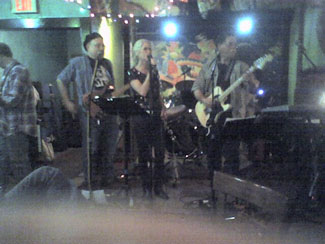I had anticipated writing a happy “Finals Are Over!” blog entry at the end of the week. Instead, we are dealing with the aftermath of the disturbing events that happened as law enforcement officers broke up a student gathering very early Friday morning.
I was called to the scene by some frightened students at about 2:30 am. After talking with a group of undergrads still gathered there, I went to check on the hospitalized and arrested students. When I came to the office later in the morning, we began gathering information to understand what went wrong. Here is the statement we sent out via email:
This morning at approximately 1:30 a.m., Wesleyan’s Department of Public Safety requested assistance from the Middletown Police Department to help disperse a crowd on Fountain Avenue. According to the Middletown Police, there were in excess of 200 students on and around Fountain Avenue who would not disperse, verbally abused police and threw objects in the direction of police officers. The police decided to forcibly clear Fountain Avenue. The action resulted in the arrest of five Wesleyan students, two of whom were brought to an area hospital for medical attention. Both were treated and then released into police custody. Students who were at the scene have reported to university administrators and to the police that law enforcement officers used excessive force and were verbally abusive during their action in clearing Fountain Avenue.
We have met with concerned students since the incident occurred and request that anyone with first-hand information about the incident please send a statement via e-mail to mroth@wesleyan.edu and mwhaley@wesleyan.edu. We will continue to work with Public Safety, Middletown Police and review statements from student witnesses in order to ascertain the facts surrounding the event. We plan to communicate what we learn about the incident as well as our plans for follow-up as soon as possible. As always, our concern is for the safety of our students and our neighbors in the Middletown community in which they reside.
Mike Whaley (VP for Student Affairs) and I have received dozens of reports from eyewitnesses. I’ve spoken with some police officers and the Chief of Police. We are piecing together the most reliable account possible to understand what went wrong and why. We are reviewing all this information, and I will be meeting with Middletown authorities to follow up on the many complaints our students have made about the use of force. We will also be reviewing our own policies as well as the behavior of some members of the Wesleyan community.
I do not intend to host a debate on this blog about who was at fault. We continue to gather information, and I will consult with student, faculty and Middletown leaders about our findings. By better understanding what went wrong this week, we can greatly improve the chances that an event like this will not happen again in our community.
[tags] Fountain Ave, public safety, Middletown Police Department, Mike Whaley, student affairs [/tags]



